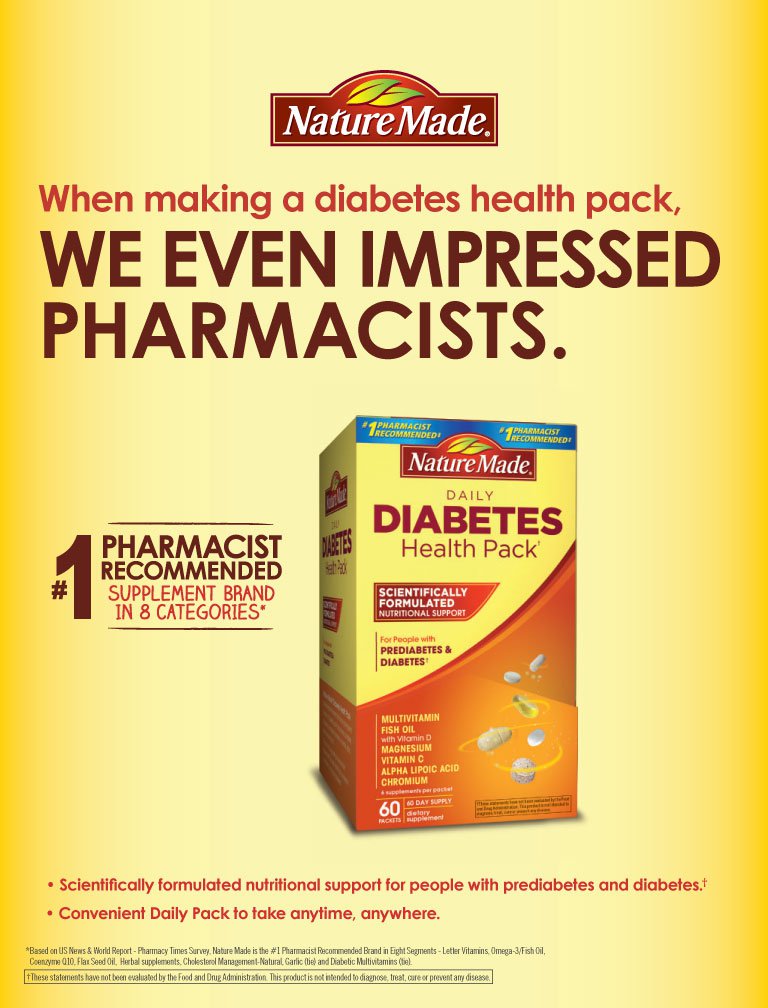Vitamins and Diabetes Care
By Robert Ehrman MD, Reviewed by Fran Daniel MPH

First, it is important to note that eating a variety of whole foods is a better choice for staying healthy than relying on vitamins or supplements. Eating lean meats, vegetables, fruits, and whole grains- and limiting fats and sugar — are important for keeping your blood glucose under control.
Individual foods can give you many different vitamins, minerals, and nutrients, in one serving. For example, raspberries contain vitamin C, fiber, and antioxidants. These nutrients, plus all the food nutrients we have not yet discovered, work together in your body to ensure that you benefit from all of them. Using vitamins or supplements – which do not have the full range of nutrients that whole foods do — may not be needed unless you have a specific vitamin deficiency. (“Deficiency” means that your body does not have enough of an important nutrient.) It’s a good idea to talk to your healthcare provider before taking any vitamin supplements to see if you really need them.
Your healthcare provider may want you to take vitamin supplements if you are:
- On a low-calorie diet and do not eat a wide variety of foods
- On a vegan diet (no meat, fish, eggs or dairy products)
- Pregnant
- On a restricted diet because you have food allergies, kidney disease or have trouble absorbing nutrients
To read the full article, please click here.


